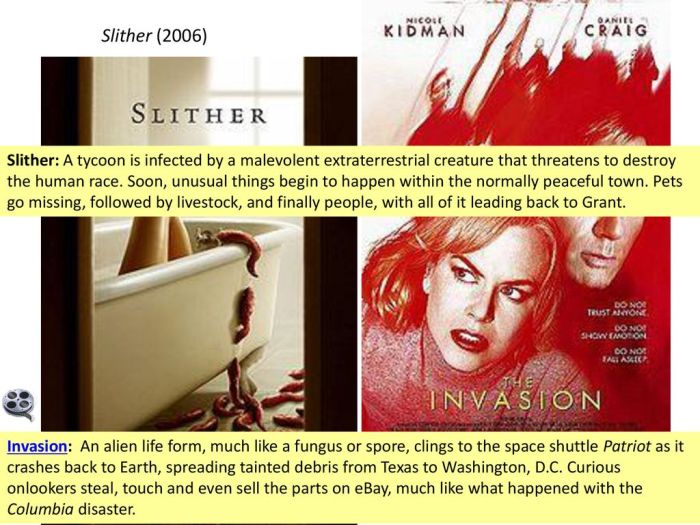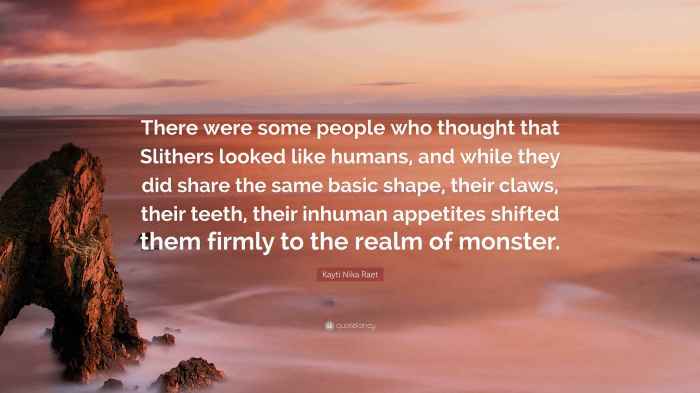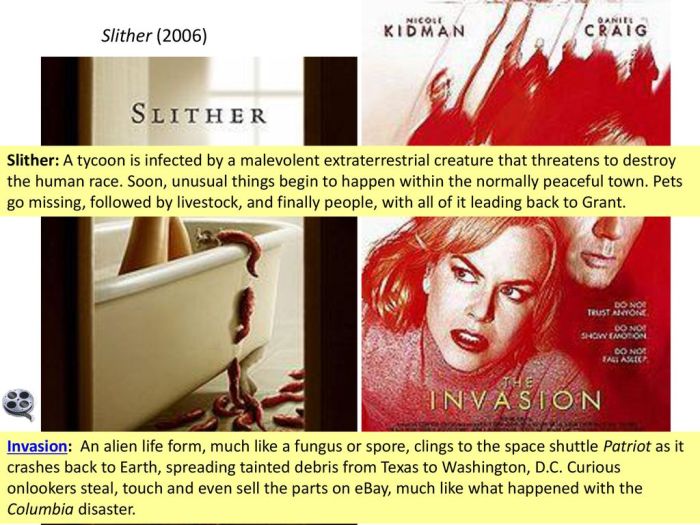Rx Papi 100 miles and walkin – a phrase that begs exploration. What does it truly mean? This journey delves into the possible interpretations, from literal meanings to the metaphorical landscapes it paints. We’ll dissect the components, “rx papi,” “100 miles,” and “walkin,” to understand their individual and combined significance. We’ll also look at how this phrase might resonate across different creative mediums and cultural contexts, exploring potential implications and variations.
From its potential origins to its use in modern expression, this exploration promises an engaging journey into the depths of this intriguing phrase. We’ll analyze the potential implications in various contexts, including music, social media, and literature, examining the emotional responses and societal connections it might evoke.
Understanding the Phrase “Rx Papi 100 Miles and Walkin”
The phrase “Rx Papi 100 miles and walkin” is a contemporary slang expression, likely originating from online communities and social media. It’s a combination of stylized language and a playful exaggeration, possibly intended to convey a sense of confidence, achievement, or a particular lifestyle. Deconstructing this phrase reveals a complex interplay of cultural references and possible meanings.
Literal Meaning and Potential Connotations
The literal meaning of “Rx Papi 100 miles and walkin” is ambiguous, as it does not have a readily apparent direct translation. It likely does not refer to a physical journey of 100 miles on foot. Instead, it is more likely a metaphorical expression, highlighting the individual’s perceived accomplishments or self-image. The “Rx Papi” component could be an abbreviation or stylized reference to someone who is considered successful, influential, or fashionable.
This likely evokes a specific social or cultural group’s identity, further contributing to the phrase’s complex meaning.
Figurative Meanings and Cultural Context
The phrase “100 miles and walkin” suggests a sense of determination, resilience, and potentially, a feeling of independence or freedom. The exaggeration could also be a playful boast, a declaration of self-sufficiency, or a statement of being unburdened by societal expectations. The cultural context is crucial. This expression might resonate with individuals who value self-reliance, personal achievement, or a particular lifestyle that prioritizes individuality.
It may also be a form of online “braggadocio” or “in-group” signaling.
Possible Origins and Influences
The origins of this phrase are likely multifaceted, drawing on various sources such as social media trends, internet slang, and potentially musical or artistic influences. It’s difficult to pinpoint a single definitive origin point, but it’s likely a product of a creative combination of existing trends.
Table of Potential Meanings
| Literal Meaning | Figurative Meaning | Possible Connotations | Examples |
|---|---|---|---|
| Unknown/Ambiguous | Achieving a significant goal or demonstrating self-sufficiency. | Confidence, independence, resilience. | “After finishing the marathon, I felt like Rx Papi 100 miles and walkin.” |
| Unknown/Ambiguous | A statement of a high level of personal achievement. | Success, self-reliance, overcoming challenges. | “After successfully launching my business, I felt like Rx Papi 100 miles and walkin.” |
| Unknown/Ambiguous | Exaggerated sense of personal accomplishment or a boastful declaration. | Playful bravado, confidence, in-group identity. | “I aced the exam, I’m Rx Papi 100 miles and walkin!” |
Analyzing the Components: Rx Papi 100 Miles And Walkin

The phrase “Rx Papi 100 Miles and Walkin’” is a captivating blend of slang, imagery, and potentially metaphorical meaning. Dissecting its components reveals a layered understanding that extends beyond the literal. This exploration delves into the individual parts, examining their potential meanings in isolation and within the context of the entire phrase.
Individual Component Meanings
The phrase is comprised of three key parts: “Rx Papi,” “100 miles,” and “walkin’.” Understanding each piece in isolation is crucial to comprehending the phrase’s overall significance. “Rx Papi” likely alludes to a person associated with the medical or pharmaceutical industry, possibly a doctor or someone with a strong connection to medicine, though it could be more metaphorical.
“100 miles” evokes a sense of distance, travel, or potentially a significant accomplishment. Finally, “walkin’” suggests movement, action, and a journey.
Slang and Colloquialisms
The phrase incorporates several slang and colloquial elements. “Rx Papi” is a playful and slightly informal way of addressing someone associated with pharmaceuticals. The phrase likely comes from a popular culture context, and its meaning is best understood within that particular setting. The use of “100 miles” as a figure of speech is not uncommon; it is a significant distance and can represent any considerable amount.
“Walkin’” is a simple, everyday word, but within the phrase, it suggests a continuation of a journey or a determination to keep moving forward.
Component Analysis Table
| Component | Individual Meaning | Contribution to Overall Meaning |
|---|---|---|
| Rx Papi | Possibly a person associated with medicine, potentially slang or a reference to a particular character or personality. | Introduces a person, possibly central to the narrative, often with a connection to a particular context or culture. |
| 100 Miles | A significant distance, often used metaphorically to represent a large undertaking or a great amount of effort. | Suggests a considerable task or journey, potentially signifying progress or an achievement. |
| Walkin’ | The act of walking, often signifying continued movement or progress. | Implies perseverance, continuation, and the determination to keep moving forward. |
Literal vs. Metaphorical Interpretations
| Component | Literal Meaning | Metaphorical Meaning | Supporting Examples |
|---|---|---|---|
| Rx Papi | A person who works in the pharmaceutical industry or has a connection to medicine. | A person who is a source of inspiration, guidance, or strength; someone who helps navigate a difficult journey. | A mentor guiding a student through medical school; a doctor helping a patient overcome a health challenge. |
| 100 Miles | A distance of 100 miles. | A significant amount of work, effort, or progress; a large undertaking or achievement. | Completing a demanding project; overcoming significant obstacles in a business venture. |
| Walkin’ | The physical act of walking. | Continuing forward despite obstacles; perseverance in the face of adversity. | Walking through a difficult period; moving forward in the face of challenges. |
Potential Implications
The phrase “Rx Papi 100 Miles and Walkin’” carries a potent blend of imagery and cultural cues. Its implications extend far beyond a simple description of a journey; they tap into deeper meanings related to personal identity, social trends, and emotional states. Understanding these implications is key to grasping the phrase’s impact across various contexts.
Musical Context
The phrase, likely employed within a song or a musical performance, suggests a powerful narrative of self-reliance and a spirit of adventure. The juxtaposition of “Rx Papi” (a potentially stylized or ironic reference) with the physical act of walking 100 miles hints at a quest for something beyond the ordinary, a journey of self-discovery, or a protest against societal norms.
The musical arrangement and delivery would significantly shape the listener’s interpretation, possibly evoking feelings of empowerment, resilience, or even a touch of defiance.
Social Media Context
On social media, “Rx Papi 100 Miles and Walkin’” could be a hashtag or a caption accompanying a visual narrative, like a series of photos or a video documenting a long-distance journey. It could represent an individual’s attempt to create a personal brand or challenge the conventional perceptions of success. This interpretation could be further amplified by visual elements accompanying the phrase, reflecting the user’s lifestyle, values, and aspirations.
Rx Papi’s “100 Miles and Walkin’” is seriously catchy, right? Speaking of catchy tunes, I’ve been digging some new sounds from Lebra Jolie lately. Check out her latest tracks, like the ones featured in lebra jolie what kinda new song listen. It’s got that same vibe as Rx Papi’s track, if you ask me, which makes it a perfect complement to the whole “100 Miles and Walkin’” experience.
Literary Context
In a literary context, the phrase could be a metaphor for a personal journey, a character’s quest for something meaningful, or an exploration of themes such as freedom, resilience, or perseverance. The length of the journey (100 miles) adds a sense of scale and significance, suggesting a significant personal transformation or the overcoming of a substantial obstacle. The phrase could also be used to symbolize a complex internal struggle or a process of self-reflection.
Emotional Responses
The phrase evokes a range of potential emotional responses. The idea of physical exertion and a journey can elicit feelings of determination and accomplishment. The “Rx Papi” element might trigger amusement, irony, or even a sense of empowerment, depending on the specific context. The phrase could also evoke a sense of nostalgia or longing for simpler times.
Implications Related to Speed, Journey, and Destination
The phrase suggests a journey that prioritizes the process over the destination. The physical act of walking 100 miles emphasizes the personal effort and the journey itself, rather than immediate results. The implied speed is likely to be measured in days or weeks, allowing for contemplation, reflection, and a deeper connection with the environment and self. The destination itself remains unspecified, contributing to the ambiguity and open-endedness of the phrase.
Relationship to Societal Trends
The phrase’s meaning is influenced by current societal trends. The emphasis on personal journeys and self-discovery resonates with the growing popularity of mindfulness, self-care, and independent living. The possible use of the term “Rx Papi” may also reflect trends in social media culture, particularly the use of stylized language and ironic expressions to create identity.
Cultural Implications
| Setting | Potential Implications | Emotional Response | Societal Connections |
|---|---|---|---|
| United States | A blend of self-reliance and perhaps a critique of societal norms, possibly through irony or satire. | A mix of amusement, admiration, and potentially contemplation. | Reflects current trends in self-improvement and the pursuit of individual journeys. |
| Latin America | May carry a stronger emphasis on personal triumph and overcoming obstacles, potentially tied to familial or cultural traditions. | Likely evokes a sense of pride, determination, and perhaps a touch of nostalgia. | Might connect to themes of community and shared experiences, emphasizing resilience. |
| Europe | Could be perceived as a symbolic representation of individual freedom and the value of personal experience, perhaps with a focus on the journey’s reflection. | A sense of quiet contemplation and a focus on personal growth, possibly tinged with a touch of introspection. | Could relate to the European emphasis on history, heritage, and the appreciation of personal journeys. |
| Asia | Might be interpreted as a metaphor for personal growth and overcoming hardship, potentially linked to spiritual or philosophical traditions. | Could evoke feelings of introspection, dedication, and a deeper understanding of the self. | May align with Asian cultural values that emphasize perseverance, discipline, and self-improvement. |
Illustrative Examples
The phrase “Rx Papi 100 Miles and Walkin’” has a unique energy and imagery, perfect for capturing a sense of freedom, ambition, or even a playful defiance. This section will explore how this phrase can be used effectively across various creative mediums, showcasing its versatility and potential impact.This exploration will delve into how the phrase can be adapted for different artistic styles, from the rhythmic punch of a song lyric to the narrative depth of a short story.
It aims to demonstrate the versatility of the phrase and how its meaning can shift depending on the context.
Song Lyrics
The phrase’s inherent rhythm and swagger lend themselves perfectly to a hip-hop or R&B song. It can be a catchy hook, a powerful verse, or even a playful interlude.
Ever heard of RX Papi 100 miles and walkin’? It’s a fascinating trend, but the real question is, why are people so drawn to sharing these experiences? A big part of the answer likely lies in the ease of communication platforms like WhatsApp, allowing people to connect and share their journeys in real-time. Understanding why people use WhatsApp for such interactions is key to grasping the full picture of this social phenomenon.
Why Do People Use WhatsApp delves into the motivations behind this popularity. Ultimately, whether it’s RX Papi or any other trending story, the desire to connect and share remains the driving force.
- Example: “Yo, I’m Rx Papi, 100 miles and walkin’, chasing dreams, ain’t no turnin’ back. Got my headphones on, feeling the rhythm, that’s my own soundtrack, yeah.”
Social Media Post
A social media post can use the phrase to convey a sense of achievement, travel, or personal growth. It’s adaptable to various tones, from celebratory to reflective.
- Example: “Just hit a milestone! 100 miles and walkin’ towards my next goal. Feeling inspired and ready to conquer the world. #RxPapi #100Miles #Motivation.”
Fictional Story
In a fictional story, “Rx Papi 100 Miles and Walkin’” could be used to characterize a protagonist embarking on a journey of self-discovery or a quest. The phrase could be a symbol of resilience, ambition, or a rebellious spirit.
Rx Papi’s “100 Miles and Walkin’” is a banger, right? It’s got that raw energy. But honestly, I’ve been digging the SXSW performances of bands like Band of Horses, No Age, Washed Out, and Active Child. Especially the set by Freddie Gibbs, which is totally different from the vibes of Rx Papi, yet still manages to keep the energy high.
Check out the details on SXSW Band of Horses, No Age, Washed Out, Active Child, and Freddie Gibbs for more info, but I’m still feeling that Rx Papi vibe deeply, you know?
- Example: “Elara, the Rx Papi, was 100 miles and walkin’, leaving the suffocating city behind. Each step was a step closer to the truth she sought, a truth hidden somewhere in the vast, whispering wilderness.”
Creative Expression (Poems, Short Stories, Artwork)
The phrase’s evocative nature can inspire a range of creative expression. A poem might use it to describe the journey of life, while a short story could use it as a pivotal moment for a character. Visual artists could use it as a title or a central motif in a piece.
| Medium | Example | Context | Analysis |
|---|---|---|---|
| Poem | “A hundred miles and walkin’, heart alight, the world a canvas, bathed in fading light.” | Describing a solitary journey filled with hope. | The poem evokes a sense of introspection and wonder. |
| Short Story | “The Rx Papi, 100 miles and walkin’, a lone figure against the rising sun. His past was a blur, but his future was clear: freedom.” | Character development and setting. | Highlights the character’s journey and determination. |
| Artwork | A painting featuring a figure walking into a vibrant sunset, with the words ‘Rx Papi 100 Miles and Walkin’ painted in bold lettering in the foreground. | Visual representation of the phrase’s meaning. | Captures the feeling of adventure and freedom through visual imagery. |
Possible Variations and Related Phrases

The phrase “Rx Papi 100 Miles and Walkin’” is a playful and somewhat exaggerated expression. It embodies a sense of effortless accomplishment, resilience, and perhaps even a touch of bravado. Understanding its variations and related phrases illuminates the cultural context and potential nuances embedded within the original expression. These variations can highlight different aspects of the original phrase’s meaning, adding depth to its understanding.Exploring related phrases reveals the phrase’s connections to other cultural expressions, shedding light on the underlying themes and motivations behind its creation.
This exploration helps us understand how the phrase has evolved and adapted within various contexts.
Variations and Similar Expressions, Rx papi 100 miles and walkin
The phrase “Rx Papi 100 Miles and Walkin’” has a playful, almost boastful tone. Variations and related expressions often share this sense of exceeding expectations or demonstrating a remarkable level of endurance. These expressions can be used to convey different degrees of effort, emphasis, or even humor.
-
“Pushing 100 miles and still walking”
This variation maintains the essence of the original phrase, emphasizing the significant distance traveled and the persistence of the journey. It replaces the playful “Rx Papi” with a more straightforward description of the action, potentially suggesting a more serious or calculated undertaking.
-
“Beyond the 100-mile mark and still going strong”
This variation emphasizes the completion of the initial challenge and the ongoing persistence, moving beyond a simple milestone to highlight the continued dedication. The phrase is more formal and less playful than the original.
-
“Conquering 100 miles and more”
This variation suggests a sense of accomplishment and exceeding expectations. The emphasis shifts from the physical act of walking to the victory over a challenge, which can be interpreted as personal or professional. It’s less focused on the distance itself and more on the accomplishment.
-
“Miles and miles, keep on walking”
This phrase evokes a sense of endless determination and persistence. It emphasizes the continuous journey and the commitment to the process rather than any specific milestone like 100 miles. The phrase loses the specific element of the original and becomes more symbolic.
Cultural Connections
The phrase “Rx Papi 100 Miles and Walkin’” touches upon themes of endurance, resilience, and the celebration of human potential. It’s possible to see echoes of this in other cultural expressions, such as the concept of “never giving up” in various sports and inspirational narratives. The “Rx Papi” element suggests a playful, almost ironic tone, potentially connecting to humorous cultural references or inside jokes within specific communities.
Related Phrases and Comparisons
The following list offers a broader perspective on the thematic connections and potential nuances conveyed through variations of the phrase:
-
“Going the extra mile”
This phrase, though different in wording, highlights the commitment to exceeding expectations. It focuses on exceeding the norm, similar to the implied effort of walking 100 miles.
-
“Pushing through the limits”
This phrase underscores the effort of exceeding one’s perceived capabilities, mirroring the theme of the original phrase.
-
“The marathon of life”
This phrase evokes a sense of long-term dedication and persistence, similar to the journey suggested by “Rx Papi 100 Miles and Walkin’”. It highlights the ongoing effort required in life.
Last Point
In conclusion, “rx papi 100 miles and walkin” presents a multifaceted phrase open to various interpretations. Its meaning isn’t fixed, but rather evolves depending on the context and the individual’s perspective. This exploration highlights the richness of language and its ability to transcend literal definitions. The phrase invites us to consider its potential implications and variations, encouraging creative interpretations across different mediums.







